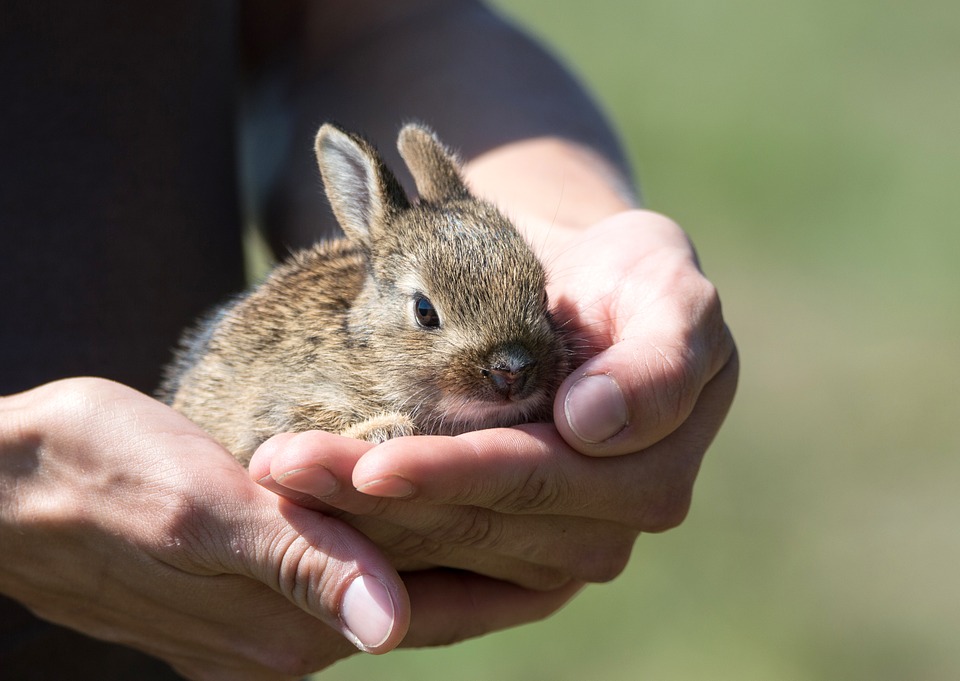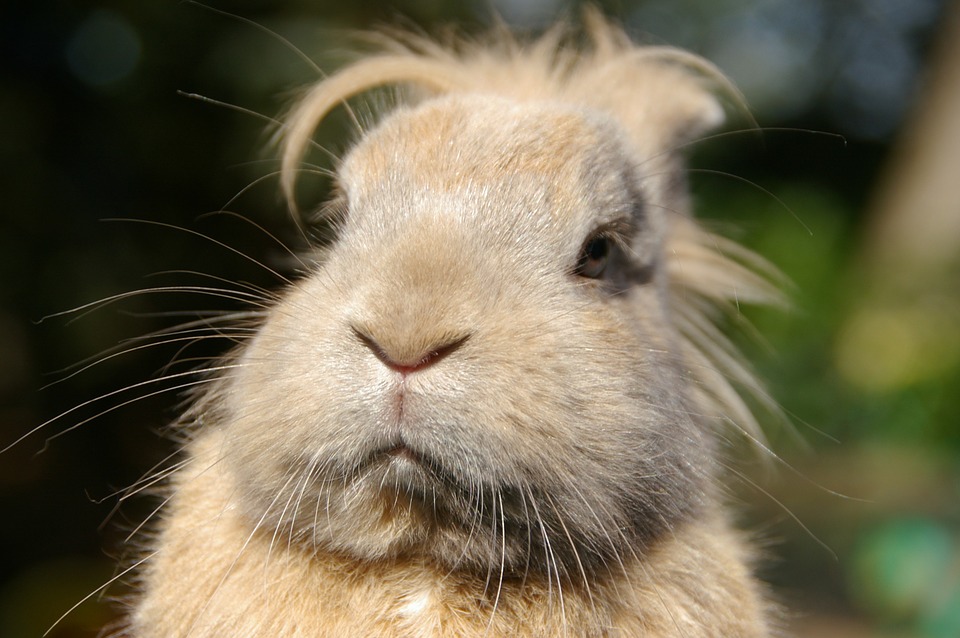This comprehensive guide explores the complexities of feeding cabbage to rabbits, examining the potential benefits, risks, and best practices for safe consumption. We'll unravel common misconceptions and provide a clear understanding of whether cabbage should be part of your rabbit's diet.
Part 1: Understanding Rabbit Nutrition

1.1. The Importance of a Balanced Diet
Rabbits are herbivores with unique digestive systems requiring a specific diet for optimal health. Their primary food source should be high-quality hay, followed by fresh vegetables and a small amount of pellets.
1.2. The Role of Fibre in Rabbit Health
Fibre is crucial for rabbit digestion. It helps stimulate gut motility, promotes healthy gut bacteria, and prevents digestive issues like hairballs.
1.3. The Dangers of Overfeeding Concentrates
Excessive amounts of pellets, treats, and sugary foods can disrupt the delicate balance of a rabbit's gut flora and lead to health problems.
Part 2: Nutritional Profile of Cabbage

2.1. Vitamins and Minerals
Cabbage is a good source of vitamins C, K, and B6, along with minerals like potassium and calcium. However, these nutrients are also found in other vegetables that are considered safer for rabbits.
2.2. Fibre Content: A Double-Edged Sword
While cabbage is rich in fibre, its high content can be challenging for rabbits to digest, potentially leading to digestive upset.
2.3. Calcium Oxalates: A Cause for Concern
Cabbage contains calcium oxalates, which can bind to calcium in the urinary tract, increasing the risk of bladder stones and other urinary issues.
Part 3: The Potential Benefits of Cabbage for Rabbits
3.1. Limited Nutritional Value
While cabbage offers some vitamins and minerals, these can be obtained from safer and more readily digestible vegetables.
3.2. Digestive Benefits - With Caution
Cabbage's fibre content can be beneficial for digestive health, but it should be introduced gradually and in small quantities to avoid digestive upset.
Part 4: The Potential Risks of Cabbage for Rabbits
4.1. Digestive Upset: Gas, Bloating, and Diarrhoea
Cabbage ferments in the rabbit's gut, producing gas and bloating. This can lead to diarrhoea and discomfort, especially in sensitive rabbits.
4.2. Urinary Tract Issues
Calcium oxalates in cabbage can contribute to bladder stones and other urinary problems in rabbits.
4.3. Goitrogens: A Potential Thyroid Issue
Cabbage contains goitrogens, compounds that can interfere with thyroid function. While this is less likely to be a significant issue in rabbits, it's a factor to consider.
Part 5: Safe Feeding Practices: Minimising Risks
5.1. Moderation is Key
Cabbage should only be offered as an occasional treat, not a regular part of the diet.
5.2. Introducing Gradually
New foods should be introduced slowly, starting with a small amount and monitoring your rabbit for any adverse reactions.
5.3. Wash Thoroughly
Always wash cabbage thoroughly before feeding it to your rabbit to remove pesticides and dirt.
5.4. Variety is Essential
Provide a diverse range of fresh vegetables, herbs, and hay to ensure a balanced diet and minimise the risk of relying on one food source.
Part 6: Alternatives to Cabbage
6.1. Leafy Greens
Romaine lettuce: A good source of vitamins and minerals, lower in oxalates than cabbage.
Spinach: Rich in antioxidants, but also high in oxalates, so should be offered sparingly.
Dandelion greens: High in fibre and vitamins, a good alternative to cabbage.
6.2. Herbs
Parsley: Provides a source of vitamin C and iron, safe for rabbits in small quantities.
Cilantro: Can aid in digestion, but should be offered in limited amounts.
Basil: Contains antioxidants, but not as high in fibre as cabbage.
Part 7: Common Misconceptions About Cabbage and Rabbits
7.1. "Cabbage is a good source of calcium."
While cabbage does contain some calcium, it also contains oxalates, which can inhibit calcium absorption and lead to urinary problems.
7.2. "Rabbits can eat cabbage regularly."
Cabbage is best offered as an occasional treat due to its potential digestive and urinary health issues.
7.3. "Young rabbits can eat cabbage freely."
Young rabbits are more susceptible to digestive upset, making it even more important to avoid feeding them cabbage.
Part 8: FAQs
8.1. Can rabbits eat red cabbage?
Red cabbage is even higher in oxalates than green cabbage, making it even less suitable for rabbits.
8.2. Is cooked cabbage safe for rabbits?
Cooking cabbage destroys some of its nutrients and makes it more difficult for rabbits to digest.
8.3. Can rabbits eat cabbage leaves?
Cabbage leaves are high in fibre and oxalates, making them unsuitable for rabbits.
8.4. Can baby rabbits eat cabbage?
Baby rabbits are particularly vulnerable to digestive problems and should not eat cabbage.
8.5. What happens if a rabbit eats too much cabbage?
Overconsumption of cabbage can lead to digestive upset, gas, bloating, and urinary tract problems.
8.6. Can I feed my rabbit cabbage every day?
Cabbage should be fed only occasionally as a treat, not as a daily staple.
8.7. Can I feed my rabbit cabbage if it's cooked?
While cooked cabbage might be easier to digest, it's best to avoid feeding it to rabbits. The cooking process reduces its nutritional value and increases the risk of digestive upset.
8.8. Is cabbage safe for pregnant or lactating rabbits?
Pregnant and lactating rabbits are more sensitive to dietary changes, so it's best to avoid feeding them cabbage.
Part 9: Conclusion
Cabbage, while offering some nutritional benefits, poses significant risks to rabbit health. Its high fibre content, calcium oxalate levels, and potential for digestive upset make it an unsafe food choice for rabbits. It's best to rely on safer alternatives like romaine lettuce, dandelion greens, and herbs, ensuring a balanced diet rich in hay and fresh, safe vegetables.
Everyone is watching
-

Do Rabbits Lay Eggs? (The Surprising Truth)
OTHER TYPES OF PETSThis article will unravel the common misconception that rabbits lay eggs, exploring the fascinating world of r...
-

Can Rabbits Eat Grapes? A Guide to Safe Rabbit Treats
OTHER TYPES OF PETSThis comprehensive guide will explore the safety and suitability of grapes for rabbits, providing detailed inf...
-

What's a Group of Rabbits Called? (A Comprehensive Guide)
OTHER TYPES OF PETSThis article delves into the fascinating world of rabbits, exploring the various terms used to describe a grou...
-

Predators That Hunt Rabbits: A Guide to Natural Enemies
OTHER TYPES OF PETSI've always been fascinated by the circle of life, that delicate dance between predator and prey. Growing up ...
-

Are Rabbits Nocturnal Animals?
OTHER TYPES OF PETSThe question of whether rabbits are nocturnal animals is a fascinating one, with a surprisingly complex answer...
